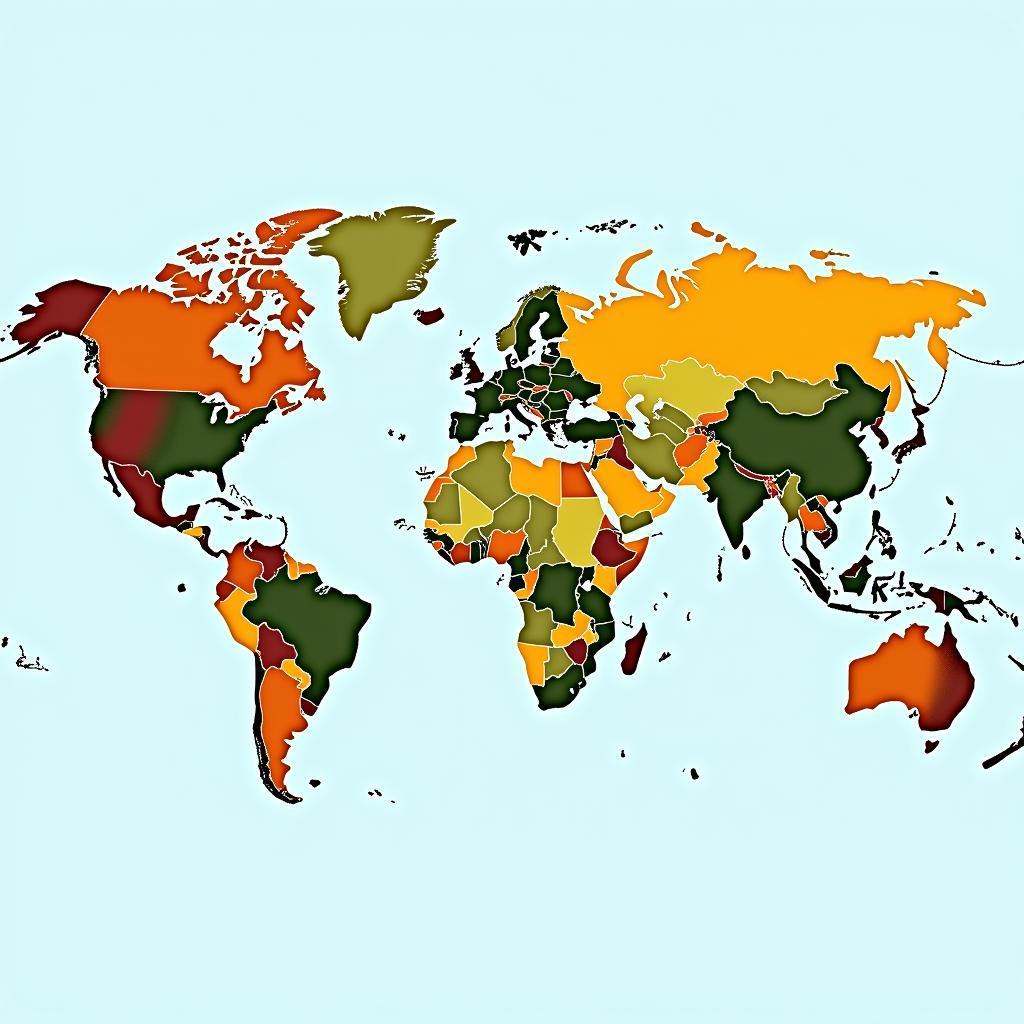In most societies, resources are allocated by a complex interplay of mechanisms, ranging from market forces and government policies to social norms and cultural values. Understanding how these systems function is crucial for comprehending economic disparities, social hierarchies, and the overall well-being of a society.
The Invisible Hand and the Visible Hand: Markets and Governments
One of the most fundamental ways resources are allocated is through markets. This system, often described as the “invisible hand” by economist Adam Smith, operates on the principles of supply and demand. Individuals and businesses, driven by self-interest, engage in voluntary transactions, determining the prices of goods, services, and labor.
However, markets are not always perfect. They can be prone to inequalities, market failures, and the underprovision of public goods. This is where governments often step in, acting as a “visible hand” to regulate markets, redistribute wealth, and provide essential services like healthcare and education.
 Government Regulation and Market Forces
Government Regulation and Market Forces
Beyond the Economic: Culture, Tradition, and Social Norms
While economic systems like markets and government intervention play a significant role, it’s crucial to acknowledge the influence of culture, tradition, and social norms in resource allocation.
In many societies, family structures and kinship ties heavily influence how resources are shared and inherited. For example, in some cultures, land might be passed down through generations within families, shaping access to resources based on lineage.
Moreover, social hierarchies based on factors like caste, religion, or ethnicity can significantly impact resource distribution. Discrimination and prejudice, unfortunately, continue to create barriers for certain groups, limiting their access to opportunities and resources.
The Quest for Fairness and Equity
The allocation of resources is not just an economic or technical issue; it’s deeply intertwined with questions of fairness and equity. Societies grapple with finding the right balance between individual freedom, collective responsibility, and ensuring everyone has a fair chance to thrive.
Social movements and advocacy groups play a vital role in challenging inequalities, promoting social justice, and pushing for a more equitable distribution of resources. From advocating for fair wages and affordable housing to fighting for equal access to education and healthcare, these groups work to create a more just and equitable world.
A Global Perspective on Resource Allocation
Understanding how resources are allocated in different parts of the world reveals striking disparities and highlights the interconnectedness of global systems. While some countries enjoy abundance and prosperity, others struggle with poverty and scarcity.
Factors like colonialism, globalization, and international trade have shaped resource distribution patterns on a global scale. For instance, the exploitation of resources in developing countries by more powerful nations has contributed to historical inequalities that persist to this day.
“Resource allocation is not a zero-sum game,” states Dr. Anya Sharma, a development economist specializing in global inequality. “By fostering cooperation, promoting sustainable practices, and addressing systemic injustices, we can create a world where everyone has the opportunity to thrive.”
 Global Disparities in Resource Distribution
Global Disparities in Resource Distribution
Conclusion: Towards a More Just and Sustainable Future
The way resources are allocated has profound implications for individuals, communities, and the planet as a whole. By understanding the complex interplay of market forces, government policies, social norms, and global dynamics, we can work towards creating a more just, equitable, and sustainable future for all. It requires ongoing dialogue, critical thinking, and a commitment to collective action to address the challenges of resource allocation and strive for a world where everyone has the opportunity to reach their full potential.
FAQ
1. What are some examples of government policies that influence resource allocation?
2. How does globalization impact resource distribution on a global scale?
3. What are some ways to promote more equitable access to resources within a society?
4. What role do social movements play in challenging resource inequalities?
5. How can individuals contribute to a more just and sustainable allocation of resources?
Need Support? Contact Us
For assistance or to learn more about our work, please don’t hesitate to reach out:
Phone Number: 02043854663
Email: [email protected]
Address: Khu 34, Bac Giang, 260000, Vietnam.
Our dedicated team is available 24/7 to provide support and answer your questions.